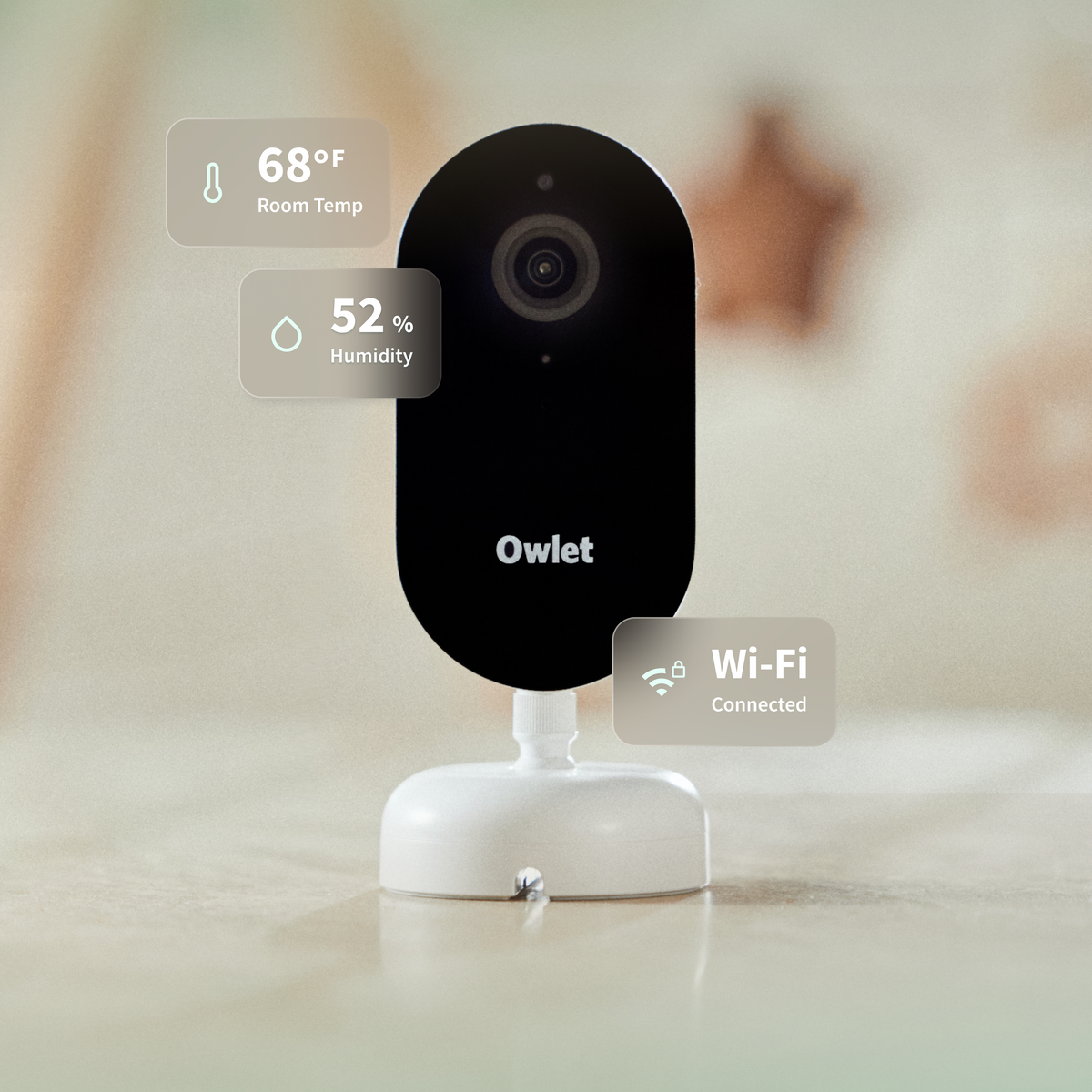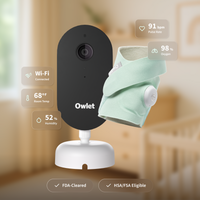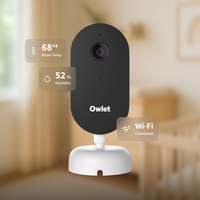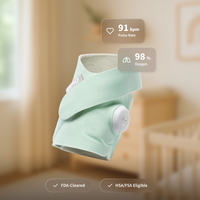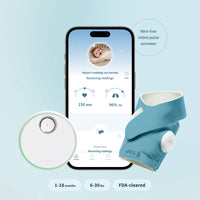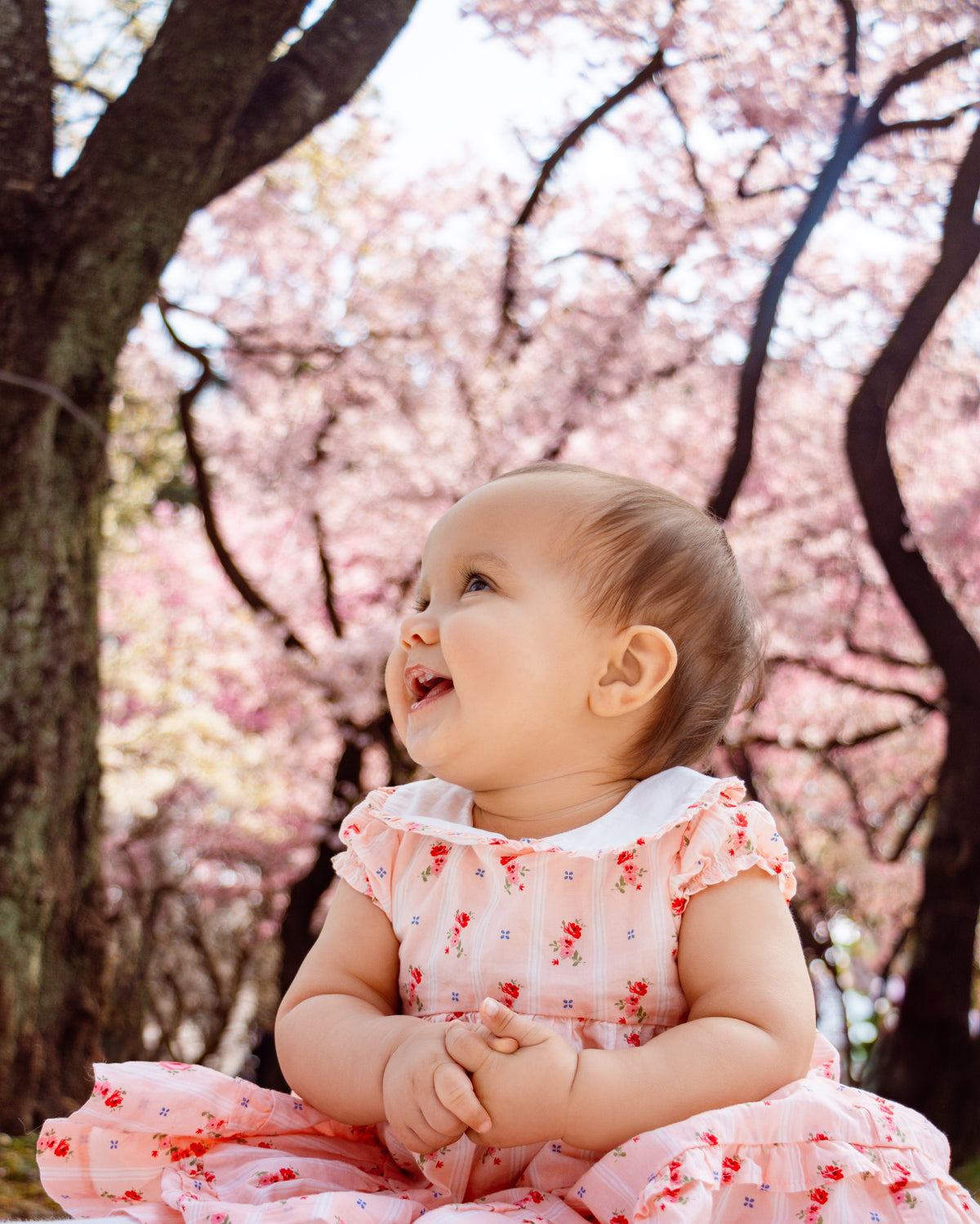Baby Sleep Patterns

Emily Osborne is a Renowned Subject Matter Expert on new parenting skills, infant sleeping and feeding, with credentials as Certified Lactation Counselor and Lamaze Childbirth Educator. The information presented here should not replace professional advice. Always consult your physician to learn more about your baby’s specific needs.
Babies change so quickly, and so do their sleeping patterns (thankfully!). A newborn baby generally needs more sleep than a 6 month-old, but there can be a lot of variation in between. Here's a breakdown of typical baby sleep patterns from birth to 12-months old. Remember to always place your baby on their back for safe sleep, and follow the recommendations for a safe sleep environment from birth through the baby's first birthday.Newborn:
Newborn babies generally need about 16-17 hours of sleep per day. A newborn needs to wake frequently because the size of their stomach is quite small and they become hungry every 2-3 hours. A newborn also wakes frequently because they have a short sleep cycle that is split between active sleep and quiet sleep.
Active sleep is the first portion of your baby’s sleep. During active sleep, your baby will make lots of noises, wiggle around and exhibit the Startle Reflex (when their arms fly out to the sides). During the 2nd portion of their sleep cycle - quiet sleep - your baby will sleep more deeply with minimal movement. It is important to respond to your baby when they wake, because they wake every 1-3 hours to eat, for diaper changes, or simply for comfort.
1-3 Months Old:
Growing babies in this phase need about 15 hours of sleep split between the day and night time. Babies will use their hands and body movements to cue their caregivers. This is how they begin to communicate with us. Watch closely for your baby’s sleepy cues: glossy eyes, rubbing ears or face with their hands, yawns, and fussing.
Try to put the baby down to sleep as soon as you see those cues, as most newborns will begin to get tired after being awake for 60-90 minutes. If they have access to their hands, babies can practice self-soothing behaviors that help with falling to sleep. By around 3-months old some babies begin sleeping through the night in 6-8 hour stretches. However, most babies will not consistently sleep through the night until at least 4-6 months of age.
3-6 Months Old:
Babies in this stage are usually more consistent, with 2-3 naps during the day and about 10 hours of sleep at night, for a total of about 14 hours of sleep each day. Some babies go through a sleep regression, however, we like to think of it as a sleep progression! Your baby progresses with sleep because their sleep cycle begins to change as they move beyond their 3rd month. Their sleep cycle changes and begins to take on more phases of sleep, which gets them closer to adult sleep cycle architecture. This change in their sleep cycle can often cause some sleep disruptions like more wakings during the night.
A consistent bedtime routine each night and placing your baby down to sleep when he/she is sleepy, but not yet asleep, can help to reset sleep patterns during this transition. Many babies will start to have more consistent, longer sleep stretches as they get closer to 6 months of age, and they will often demonstrate their own unique self-soothing skills like sucking on their fingers, rubbing their cheeks with their hands, or even rolling over and using different positions to find comfort for sleep.
6-9 Months Old:
At this stage your baby will likely thrive from and expect a consistent sleep routine, continuing with 2 naps per day and sleeping about 14 hours per day in total. Every baby is on their own unique journey through development, so although we see trends in babies moving towards longer sleep stretches, sleep is a developmental milestone that is reached when the baby is ready. Keep working on consistent bedtime routines and this will allow your baby to continue practicing the skills of self-soothing and falling asleep independently. Babies also become very mobile and curious at this age, so ensure that there are no choking or suffocation hazards the baby can access both in and near the crib, although this is important to ensure from birth.
9-12 Months Old:
It is likely that your baby is pulling up to stand during this phase, and some even begin walking this early. Ensure the crib is lowered so that your standing baby cannot fall out. At this stage, your baby may take shorter naps during the day but continue sleeping 14-hours per day in total. At this age babies generally sleep well through the night, but can still be woken up from anxiety, teething pain, dreaming, or the excitement from new physical or cognitive developments (crawling, standing, throwing, etc.). Remember, no one actually sleeps through the night. We all wake at various times throughout the night and we may or not remember waking up, changing positions, and falling back to sleep. For our babies, these nighttime wakings can be alarming or scary if they are alone and do not have the skills to fall back to sleep independently.
